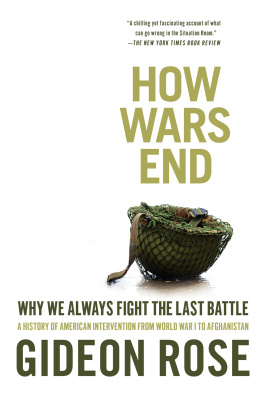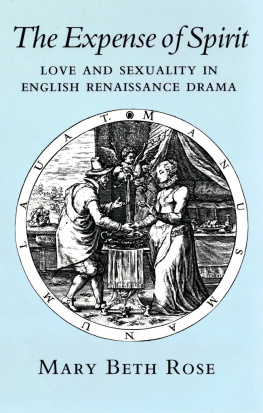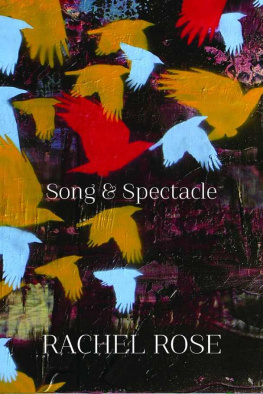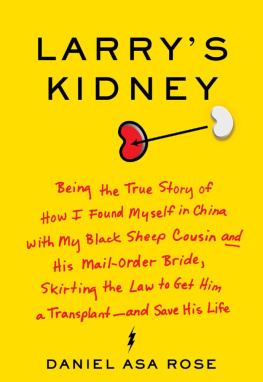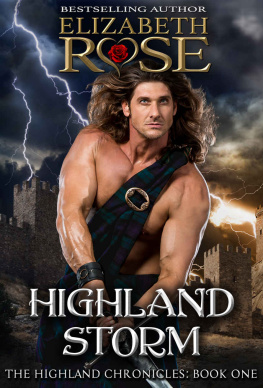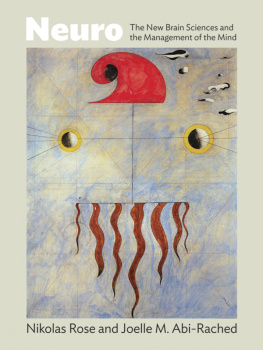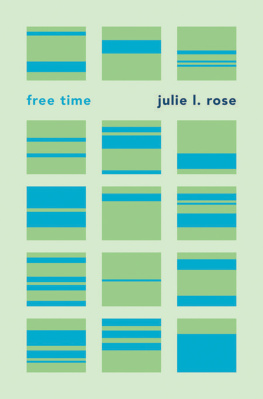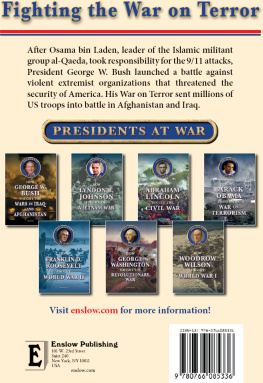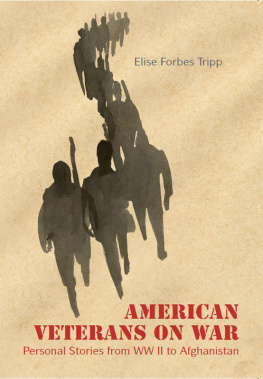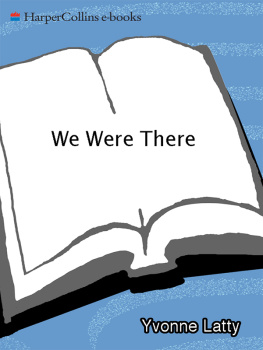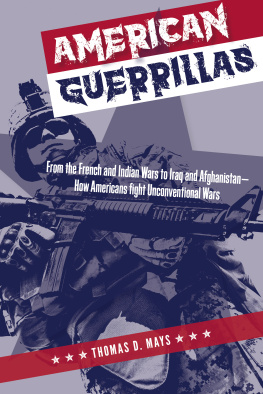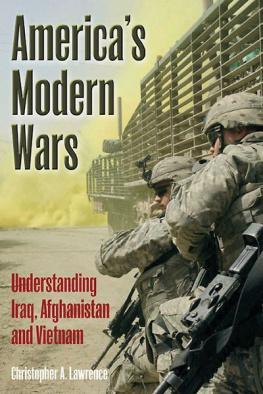Praise for
H OW W ARS E ND
This is a brilliant book on an important subject. Americans are always disappointed with the outcomes of wars and the troubled peaces that follow. Gideon Rose explains that this is because of the way we thinkor dont thinkabout war and peace. The book is a masterpiece of historical analysis with lessons for our strategy in Afghanistan and beyond.
Fareed Zakaria, author of The Post-American World
A sharp overview of the late stages of modern wars.... Essential reading for national policymakers.
Kirkus Reviews
A timely assessment of the political, military, and social quandary that confronts our leaders in times of war.... Essential reading for anyone who is seeking a historical perspective on a problem that seems doomed to repeat itself as long as nations rely on military might alone to achieve their goals.
Dan Sampson, culturemob.com
This is just what its title says: a book about how American wars have ended over the past century and why theyve ended (or continued to sputter on) the way they did.... This is the first book Ive read that really laid out the problem methodically.
Kevin Drum, Mother Jones (one of the five best nonfiction books of 2010)
A masterful piece of research on the decisions and actions leading to war termination.... A brilliant in-depth analysis of each conflict from World War I through the ongoing conflicts in Iraq and Afghanistan.
James N. Soligan, PRISM
Gideon Roses wise, trenchant review of the last century of world conflict is one of the startlingly rare books that gets the connection between war and politics, means and ends.
Fred Kaplan, War Stories columnist, Slate
Fred Ikles 1971 book Every War Must End has influenced analysts and policymakers for decades. Gideon Roses How Wars End is likely to be just as influential for generations to come. You may think you know something about the wars he writes about, but you are guaranteed to learn something new here. Rose is always accurate and fair, neither sycophantic nor unduly scathing. This is a book that should be read by everyone involved in military planningand everyone affected by the decisions those planners make.
Max Boot, the Jeane J. Kirkpatrick senior fellow in national security studies at the Council on Foreign Relations and author of The Savage Wars of Peace and War Made New
Gideon Roses meticulously researched book shows that America forgets the political aspects of war; its leaders focus on military victories and neglect the creation of a stable postwar order, most recently in Iraq. Rose, who earned his doctorate in political science under Samuel Huntington at Harvard, taught at Princeton, and now edits Foreign Affairs , tells the riveting story of American wars and politics from Woodrow Wilsons decision to join World War I, through Roosevelts involvement in World War II and Trumans Korean war, to the failures of the Kennedy and Johnson administrations in Vietnam without any exit plans. How Wars End is a superb recreation of the choices American presidents and their advisers made during these crucial moments in the U.S. history, choices that affected millions of lives and shaped our world. This is a must-read.
Basharat Peer, Granta , Best Books of 2010
By focusing on the intricate, often overlooked endgames of conflicts, Gideon Rose makes a compelling case that the unintended consequences of wars have overwhelmed even the best-intentioned plans of American leaders. Every top official contemplating military action should read this terrific bookand take its lessons to heart.
Andrew Nagorski, author of The Greatest Battle
Thought-provoking.... An excellent read, particularly for those with a passion for national security issues and strategic planning.... An excellent volume to begin the process of postwar planning and to consider how to use history as a model to address the complex issues involved in ending a war.
Proceedings magazine (U.S. Naval Institute)
ALSO BY GIDEON ROSE
Understanding the War on Terror
(edited with James F. Hoge, Jr.)
America and the World:
Debating the New Shape of International Politics
(edited with James F. Hoge, Jr.)
How Did This Happen?
Terrorism and the New War
(edited with James F. Hoge, Jr.)
A H ISTORY OF
A MERICAN
I NTERVENTION
F ROM W ORLD W AR I
TO A FGHANISTAN
To the victims of bad planning


Simon & Schuster Paperbacks
A Division of Simon & Schuster, Inc.
1230 Avenue of the Americas
New York, NY 10020
www.SimonandSchuster.com
Copyright 2010 by Gideon Rose
All rights reserved, including the right to reproduce this book or portions thereof in any form whatsoever. For information address Simon & Schuster Paperbacks Subsidiary Rights Department, 1230 Avenue of the Americas, New York, NY 10020.
First Simon & Schuster trade paperback edition December 2011
SIMON & SCHUSTER PAPERBACKS and colophon are registered trademarks of Simon & Schuster, Inc.
The Simon & Schuster Speakers Bureau can bring authors to your live event. For more information or to book an event, contact the Simon & Schuster Speakers Bureau at 1-866-248-3049 or visit our website at www.simonspeakers.com.
Designed by Ruth Lee-Mui
Library of Congress Cataloging-in-Publication Data
Rose, Gideon.
How wars end : why we always fight the last battle / Gideon Rose.1st Simon & Schuster hardcover ed.
p. cm.
Includes bibliographical references.
1. United StatesHistory, Military20th century. 2. United StatesHistory, Military21st century. 3. United StatesMilitary policy. 4. Military planningUnited States. 5. Politics and warUnited States. 6. WarTermination. 7. Disengagement (Military science) I. Title.
E181.R677 2010
355.00973dc22
2010034817
ISBN 978-1-4165-9053-8
ISBN 978-1-4165-9055-2 (pbk)
ISBN 978-1-4165-9382-9 (ebook)
Excerpt from Before the Fall: An Inside View of the White House by William Safire, copyright 1975 by Transaction Publishers, reproduced with permission via Copyright Clearance Center.
Excerpt from pp. 3035 of Squandered Victory: The American Occupation and the Bungled Effort to Bring Democracy to Iraq by Larry Diamond, copyright 2005 by Larry Diamond, reprinted by arrangement with Henry Holt and Company, LLC.
The Council on Foreign Relations (CFR) is an independent, nonpartisan membership organization, think tank, and publisher dedicated to being a resource for its members, government officials, business executives, journalists, educators and students, civic and religious leaders, and other interested citizens in order to help them better understand the world and the foreign policy choices facing the United States and other countries. Founded in 1921, CFR carries out its mission by maintaining a diverse membership, with special programs to promote interest and develop expertise in the next generation of foreign policy leaders; convening meetings at its headquarters in New York and in Washington, DC, and other cities where senior government officials, members of Congress, global leaders, and prominent thinkers come together with CFR members to discuss and debate major international issues; supporting a Studies Program that fosters independent research, enabling CFR scholars to produce articles, reports, and books and hold roundtables that analyze foreign policy issues and make concrete policy recommendations; publishing Foreign Affairs, the preeminent journal on international affairs and U.S. foreign policy; sponsoring Independent Task Forces that produce reports with both findings and policy prescriptions on the most important foreign policy topics; and providing up-to-date information and analysis about world events and American foreign policy on its website, www.cfr.org.
Next page
